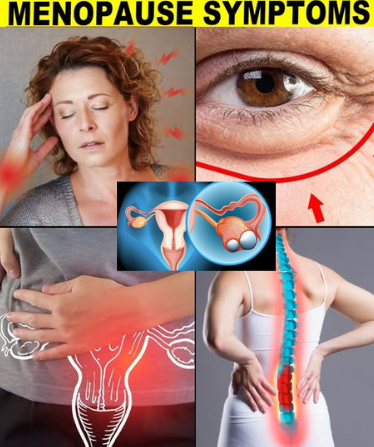
Menopause Isn’t a Sudden Event—it’s a Subtle Transition
Think menopause is years away? Think again. For many women, it doesn’t arrive with a bold announcement—it tiptoes in, changing your body in ways that are easy to dismiss. One day you’re going about life as usual, and the next, you’re wondering why you’re sweating in an air-conditioned room or forgetting why you opened the fridge.
The truth is, menopause often begins with small shifts known as perimenopause, the stage before your periods stop for good. And while every woman’s journey is unique, these nine signs are among the most common indicators you might already be in it.
Hot Flashes Out of Nowhere
You’re sitting still, minding your business, when suddenly your face feels like it’s on fire. Hot flashes can strike at any time—day or night—and leave you flushed, sweaty, and uncomfortable. They’re triggered by changes in estrogen levels, which confuse your body’s internal thermostat.
Night Sweats That Disrupt Your Sleep
It’s not just bad dreams. Waking up drenched in sweat can be a sign that your hormones are on a rollercoaster ride. Night sweats often go hand-in-hand with hot flashes, making it harder to stay asleep and leaving you feeling drained in the morning.
Mood Swings You Can’t Explain
One moment you’re laughing, the next you’re tearing up over a TV commercial. Hormonal fluctuations can affect neurotransmitters in the brain, creating sudden mood changes that may feel unpredictable. It’s not “in your head”—it’s your body adjusting to a new hormonal balance.
Irregular or Missing Periods
Menopause doesn’t happen overnight. Your periods might show up late, disappear for months, or change in flow. This unpredictability is a classic sign of perimenopause, signaling that your ovaries are gradually producing less estrogen.
Video : Doctor explains signs of perimenopause
Trouble Sleeping
If you’re finding it harder to fall asleep—or you’re waking up at odd hours—shifting hormone levels might be to blame. Insomnia can be intensified by night sweats, anxiety, or changes in melatonin production, making rest elusive just when your body needs it most.
Brain Fog and Memory Lapses
Walking into a room and forgetting why? Losing your train of thought mid-sentence? Cognitive changes are common during menopause. Lower estrogen levels can impact brain function, making concentration and memory recall trickier than before.
Low Libido
If your interest in intimacy has dipped, it’s not just in your mind—hormones like estrogen and testosterone play a big role in sexual desire. Lower levels can affect arousal, lubrication, and overall comfort, which can influence your mood and relationships.
Vaginal Dryness and Discomfort
This is one of the less-talked-about but very real symptoms of menopause. Reduced estrogen thins and dries vaginal tissues, leading to discomfort, especially during intimacy. It’s a natural change, but one that many women find emotionally and physically challenging.
Weight Gain Around the Belly
Even if your eating habits and activity levels haven’t changed, hormonal shifts can cause your body to store more fat around the midsection. Add in a slower metabolism, and you may notice weight creeping up in new places.
Taking Control of Your Menopause Journey
Menopause is not an illness—it’s a natural life stage. The key is learning how to manage symptoms and support your long-term health. Here are some strategies to help you navigate this transition with confidence:
- Adopt a hormone-friendly diet rich in whole foods, fiber, healthy fats, and lean protein.
- Stay active—strength training and cardio can help maintain muscle mass, bone strength, and metabolism.
- Prioritize rest and stress management through yoga, meditation, or deep breathing.
- Consider medical guidance—talk to your doctor about options like hormone therapy, herbal remedies, or supplements.
Video : 10 Perimenopause Tips I Wish I Knew Sooner
Final Thoughts: Embracing the Change
If these signs sound familiar, you’re not imagining it—you might already be in menopause. But that’s not something to fear. The more you understand what’s happening in your body, the better equipped you’ll be to manage it.
Menopause isn’t the end of youth or vitality—it’s the start of a new chapter. With the right mindset, lifestyle adjustments, and support, you can approach this stage with strength, clarity, and confidence.


